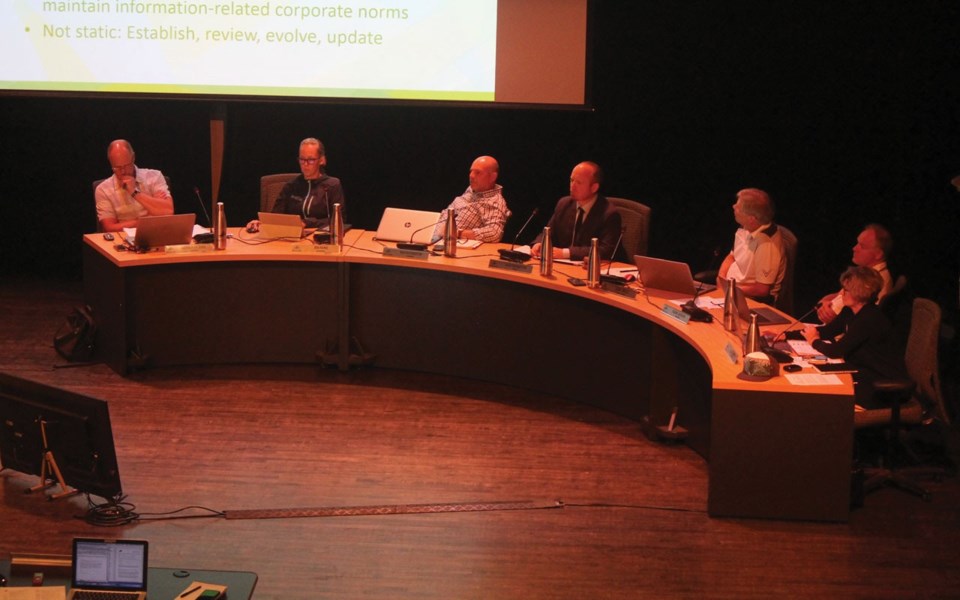Almost exactly one year after Whistler's mayor and council drew the ire of Canada's oil industry with a "hypocritical" letter requesting that 19 global oil producers begin taking financial responsibility for the costs of climate change, is Whistler ready to rejoin the fight?
At its Dec. 17 meeting, council received a letter from the Georgia Straight Alliance and West Coast Environmental Law inviting it to "collaborate on accountability" for climate change.
"We are writing today to encourage you to explore the legal options related to climate costs for your own local governments," the letter read, in part.
"It is significant that many B.C. local governments have already written letters to fossil fuel companies pointing out the moral responsibility of these companies for local climate costs. However, recovering climate costs from fossil fuel companies and transforming their business practices may require stronger action."
Though council didn't commit to any action—the letter was received and referred to staff, which will report back to council at a later date—at least one councillor didn't seem keen on the idea.
"I think we've done some heavy lifting on this file, so I think that we can consider that action taken," said Coun. Cathy Jewett, at the meeting.
But despite the firestorm Whistler endured late last year (see
Pique, Dec. 20, 2018, "Whistler climate-change letter draws ire of fossil-fuel industry"), the concept began to pick up steam in 2019.
On June 27, Vancouver's city council passed a motion instructing Mayor Kennedy Stewart to reach out to local governments across the country to investigate possible joint legal strategies to hold fossil fuel companies accountable for climate-related costs, and at the Union of BC Municipalities convention in September, the City of Victoria announced that Joseph Arvay, one of Canada's top litigators, is drafting a legal opinion about the potential for a class action lawsuit by B.C. communities against fossil-fuel companies.
"We thought that it was important to check back in with municipalities that have recognized that their taxpayers shouldn't be paying 100 per cent of these costs ... to make sure they were aware of that opportunity and to encourage them to check in with both of those municipalities and explore ways to collaborate, to share information and jointly explore what might be possible," said Andrew Gage, staff lawyer with West Coast Environmental Law.
So far, 26 B.C. municipalities have either sent letters to fossil-fuel companies or to the province asking for legislative changes, Gage said—though in at least one case (the District of Squamish), a letter was never sent despite council voting to do it.
The concept of legal action against fossil-fuel emitters is gaining traction worldwide, Gage said, pointing to communities in the U.S. and one in Germany that are already suing companies, or a human rights commission in the Philippines that found 47 fossil-fuel companies had contributed to human rights violations.
"This is a global discussion in terms of recognizing that we can't ignore the costs of the fossil-fuel economy, we can't pretend that this industry is profitable when it's not actually paying for any of the costs associated with its products," Gage said.
"So I think that the goal is both to look at ways that our communities can ultimately get the resources they need to prepare for climate change and protect our citizens, but also to ensure that the fossil-fuel industry has to start accounting for those costs when they make business decisions."




